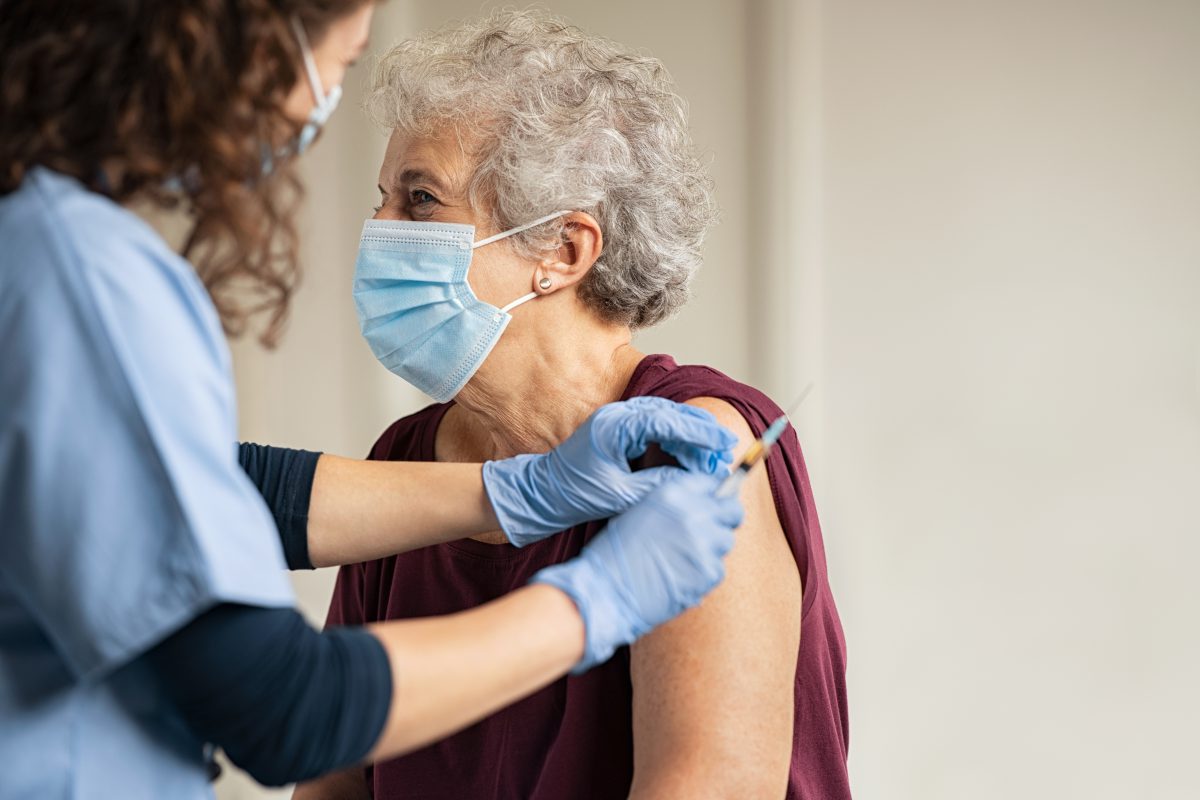


Recently, a Wisconsin pharmacist was arrested for attempting to destroy hundreds of vials of the COVID-19 vaccine. He feared the vaccine could change the DNA of anyone who received it.
Fears and rumors and worries about the safety and the ethics of the various COVID-19 vaccines are understandable. After all, no vaccine has ever moved into distribution this quickly, and much has been made about the new approach to vaccination take by the Moderna and Pfizer vaccines. And, of course, elected officials aren’t always trusted in our culture.
Just before Christmas, I asked friend, former teacher, and trusted bioethicist Dr. C. Ben Mitchell to walk through the ethics of the COVID-19 vaccines on the BreakPoint Podcast. I’ve known Dr. Mitchell for years. I know him to be careful and measured, while also theologically faithful.
I know him to seek out the best sources for his information while also being wary of what is the Achilles heel of modern medical technologies — unexpected consequences. Our conversation went for over an hour, but that’s what I was hoping for: a careful, measured, informed and thorough look at the various ethical questions that have arisen because of the COVID-19 vaccines.
For example, the unprecedented speed at which the various vaccines were developed, reducing a process that often takes years to mere months, is an extraordinary accomplishment. Still, it’s perfectly reasonable to wonder if ethical and safety corners were cut to bring the vaccine to market so fast. That’s one of the things we talked about that.
At the top of the list for most Christians, myself included, is whether or not cells from aborted fetuses were used in the development of the vaccines. Citing the extensive research on the issue by the pro-life Charlotte Lozier Institute, Mitchell agrees that the vaccines produced by Pfizer and Moderna are “ethically uncontroversial,” a position affirmed by the U.S. Catholic Bishops. In our interview, Dr. Mitchell not only walks through the data, but offers a mini-course in unraveling these sorts of ethical complexities.
We also spent extended time discussing the new mRNA approach used by some of the vaccines. Until now, vaccines have worked by introducing a weakened or inactivated version of the virus to trigger an immune response, which then creates an immunity to the illness in our bodies.
These COVID vaccines use messenger RNA (mRNA) to teach our cells how to make proteins that, in turn, trigger an immune response and subsequently create immunity. This approach, while new to vaccines, has been used for years in other treatments, including cancer treatments. The novelty of using this approach in vaccines has caused confusion and concern. Dr. Mitchell walks through it with in clear and understandable terms.
Concern has also been raised about the possible effect the vaccines could have on pregnant women. According to the CDC, “only limited data are available on the safety of COVID-19 vaccines . . . administered during pregnancy.” According to Dr. Mitchell, this is also because of the unprecedented speed at which the vaccine was developed and approved, not because of any known problems such as long-term infertility. And that is one of the outstanding questions about the COVID-19 vaccines. Whereas the safety protocols for short-term and mid-term results are pretty clear, the long-term results cannot be.
A final topic we discussed is whether or not COVID vaccinations would be mandated, either directly by the state or indirectly by schools, colleges, airlines, and corporations. This introduces yet another ethical issue surrounding the vaccine, one made more acute by the medical community’s overall embrace of vaccines as a preventative strategy.
In the end, concerns over the COVID vaccines are understandable. Ends do not justify immoral or unethical means, and ethical consideration is absolutely necessary, but it must be informed by truth rather than overtaken by fears or conspiracy theories.
You may not agree with Dr. Mitchell’s conclusion that Christians, unless doctors indicate otherwise, should get the vaccine, especially out of concern and love for their neighbor. Even so, I think anyone who takes the time to listen will find the ground covered by this interview very helpful in understanding the issues. Please come to BreakPoint.org to hear my entire conversation with bioethicist Dr. Ben Mitchell.
Topics
Apologetics
Christian Living
Christian Worldview
Culture/Institutions
Ethics
Health & Science
Religion & Society
Worldview
Resources:
Are Covid Vaccines Ethical – Interview with Dr. Ben Mitchell
John Stonestreet | Breakpoint | January 5, 2021
David K. Li & Samira Puskar | NBC News | January 4, 2021
An Ethics Assessment of COVID-19 Vaccine Programs
Charlotte Lozier Institute | May 2020
U.S. Catholic bishops: Getting a COVID-19 vaccine is an ‘act of charity’
Julie Asher | America: The Jesuit Review | December 14, 2020
Understanding mRNA COVID-19 Vaccines
CDC | December 18, 2020
What’s mRNA and how is it used in COVID vaccines?
Geisinger | January 6, 2021
Vaccination Considerations for People who are Pregnant or Breastfeeding
CDC | January 7, 2021
Have a Follow-up Question?
Up
Next

Related Content

© Copyright 2020, All Rights Reserved.













